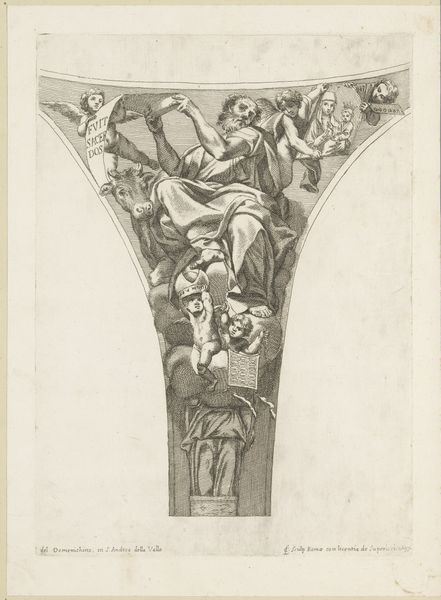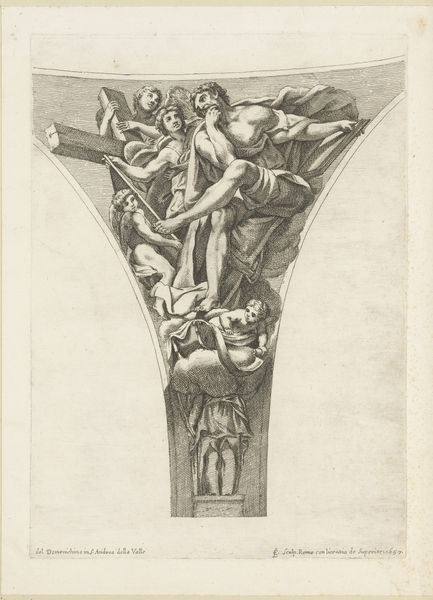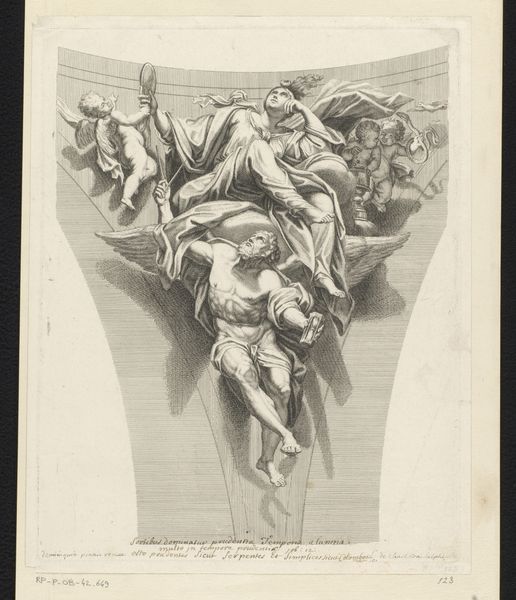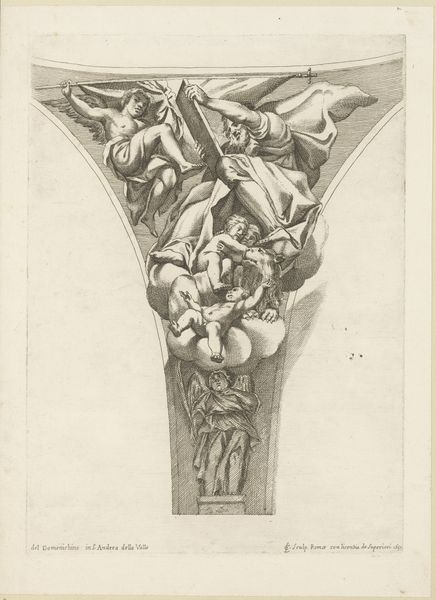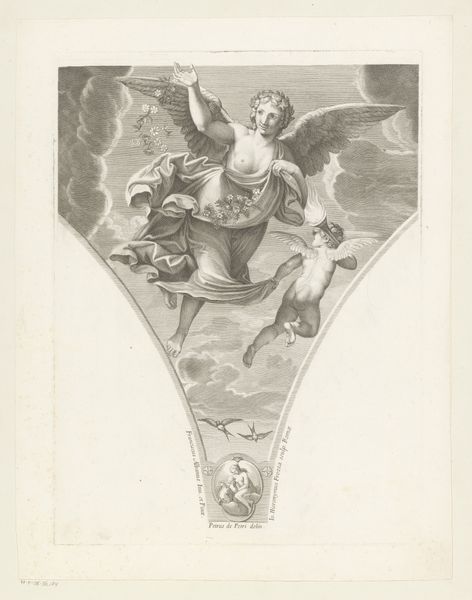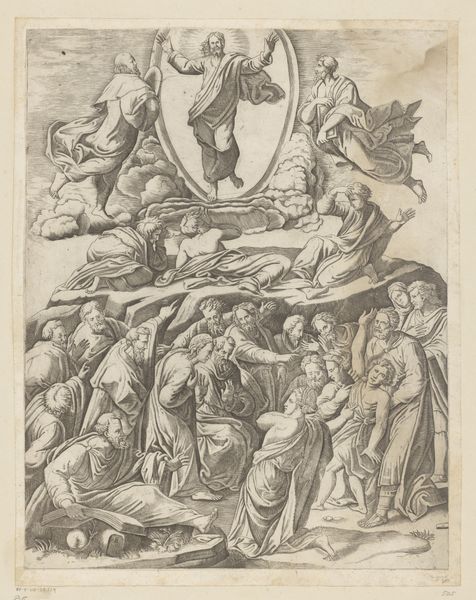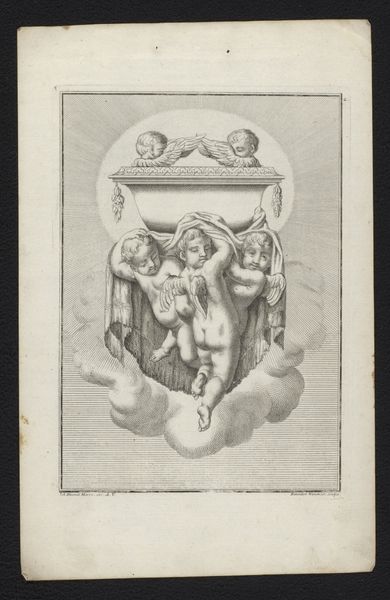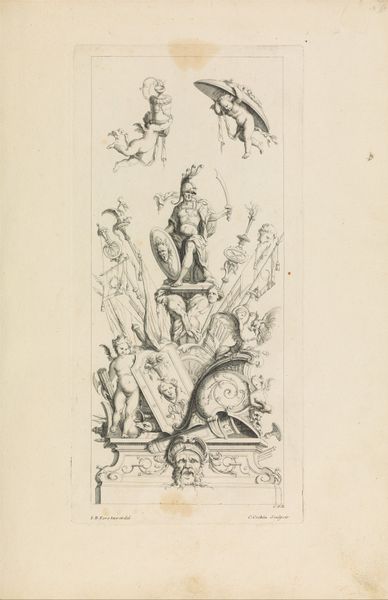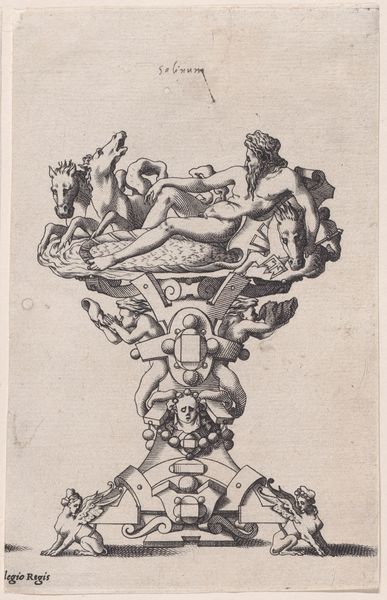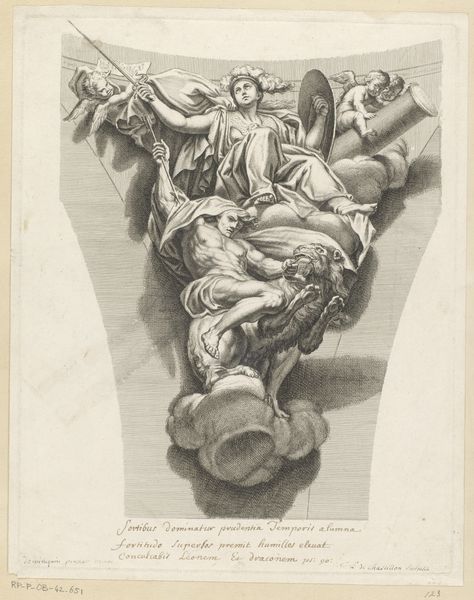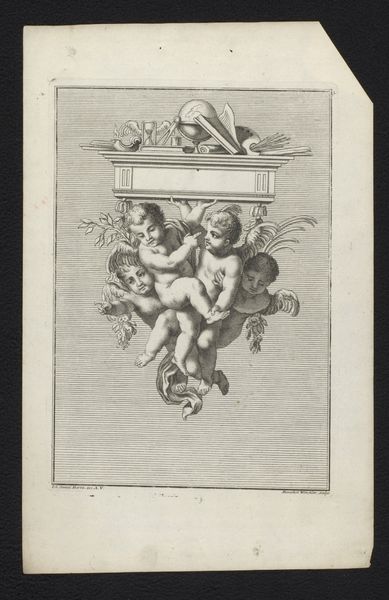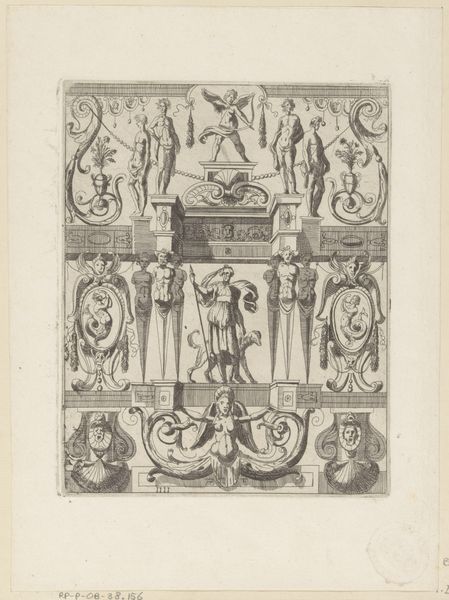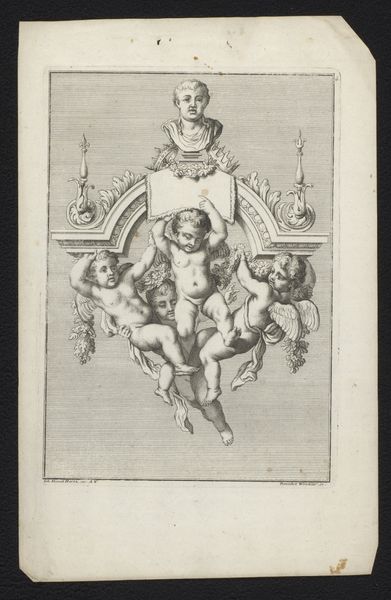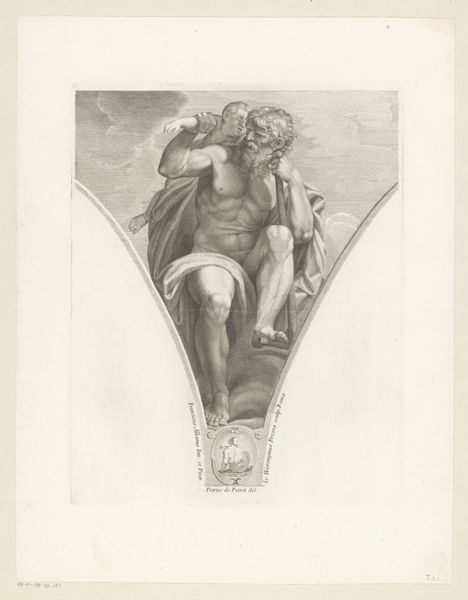
#
pencil drawn
#
aged paper
#
toned paper
#
light pencil work
#
pencil sketch
#
old engraving style
#
personal sketchbook
#
sketchbook drawing
#
pencil work
#
sketchbook art
Dimensions: height 327 mm, width 236 mm
Copyright: Rijks Museum: Open Domain
Stephan Colbenschlag made this print of John the Evangelist in the 17th century. The composition is derived from a fresco by Domenichino in the church of Sant’Andrea della Valle in Rome. Colbenschlag was working at a time when the Catholic Church was trying to revive its authority in the face of the Protestant Reformation. Religious imagery became an important tool for reaffirming Catholic doctrine and inspiring piety among the faithful. In this print, John is shown surrounded by symbols of divine inspiration, including the eagle that is his attribute, and the angels who bring the word of God. The artist uses the visual language of the Baroque to create a sense of drama and emotional intensity. The figures are dynamically posed, and the use of light and shadow suggests a heavenly vision. This was a period when the Church was a major patron of the arts, and it employed artists to create works that would reinforce its message and promote its agenda. To fully understand the social and institutional context of this artwork, we might turn to the historical records of the Catholic Church, the biographies of the artists involved, and the critical literature of the period. Art is always created within specific social conditions, and its meaning is contingent on its historical context.
Comments
No comments
Be the first to comment and join the conversation on the ultimate creative platform.
